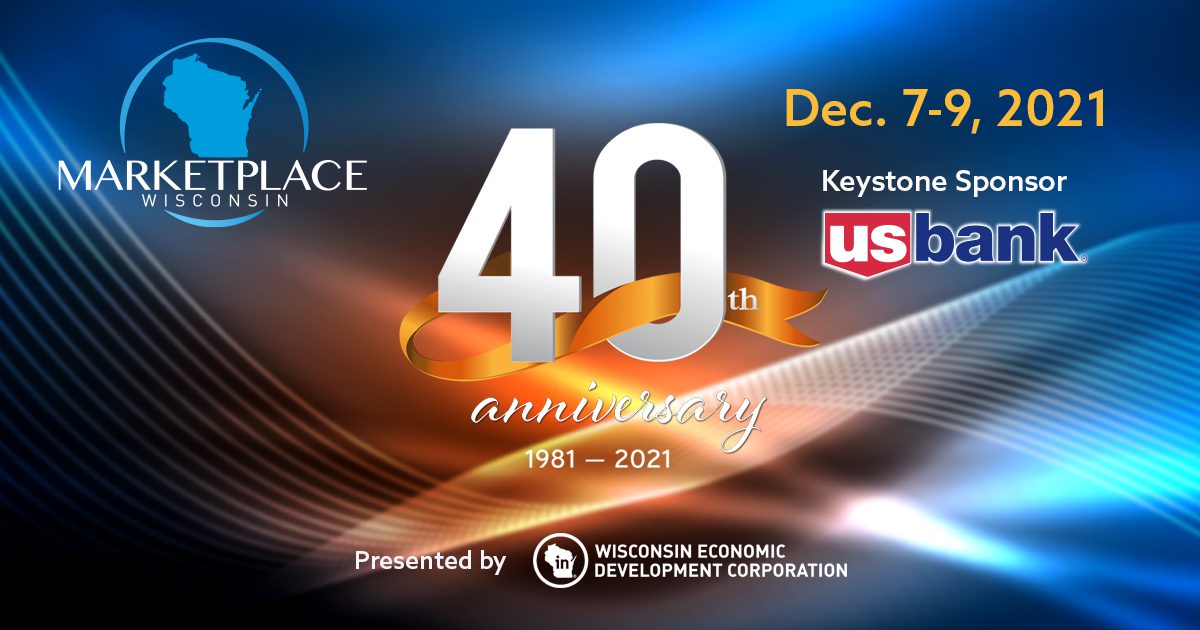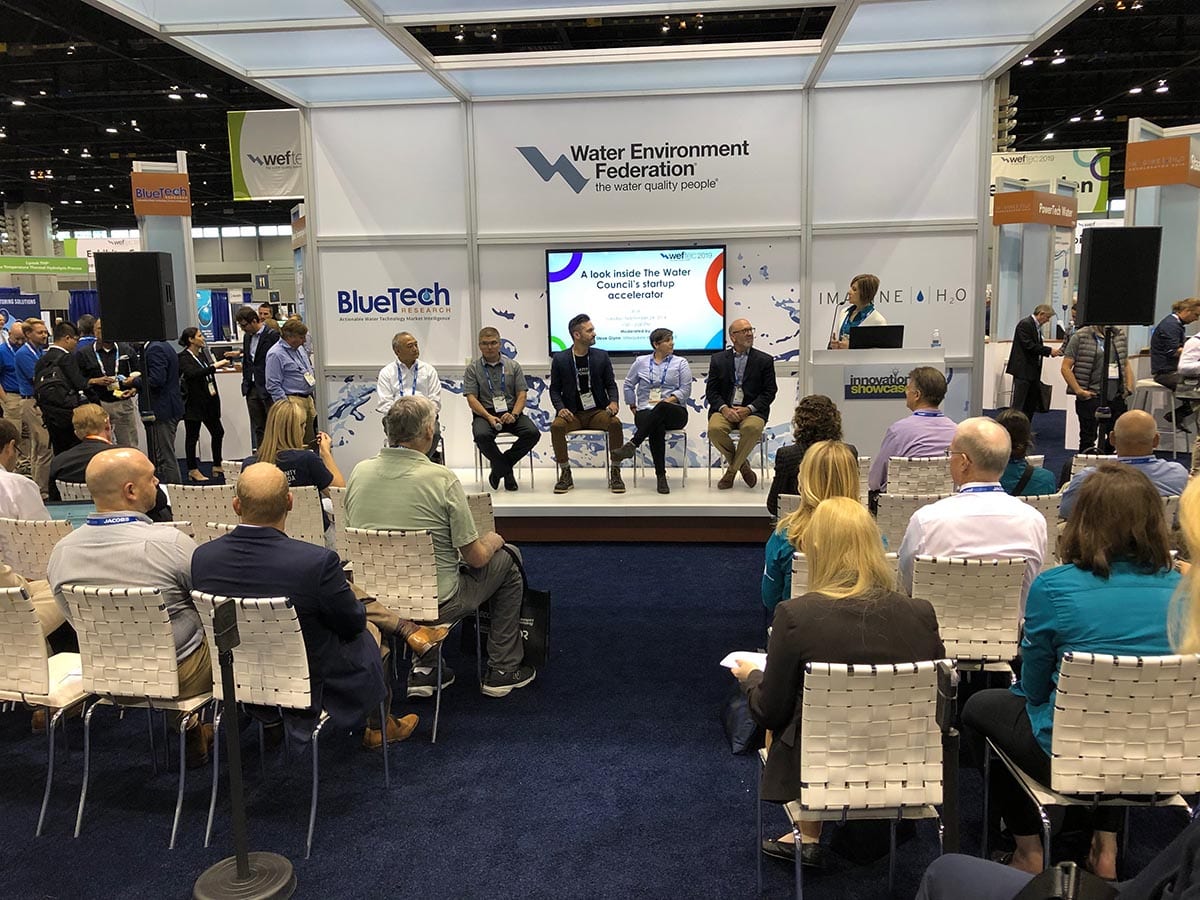An overly guarded approach to research and development can slow down the pace of innovation or cause companies to miss out on opportunities while their competitors pull ahead. This is the argument that underlies the concept of open innovation, in which companies look beyond their in-house talent, trusting that the sharing of ideas can lead to faster and better innovation and, ultimately, greater impact on the problems a company aims to solve.
Corporate-sponsored accelerators are one tool that gives established companies access to fresh new ideas and connects them with promising new technologies in their field. As companies observe their peers having positive experiences with these accelerators, this leads more companies to want to hold their own accelerator-style innovation challenges. “Open innovation can lead to increased profits and optimize the internal innovation process,” said Elizabeth Thelen, director of entrepreneurship and talent at The Water Council. “Even NASA uses open innovation tools for space exploration, including tournament labs and challenges,” she said, noting the one just announced in partnership between NASA and The Water Council.
The Water Council has successfully completed two corporate-led rounds of its BREW (Business. Research. Entrepreneurship. In Wisconsin) Accelerator thus far, and recently began a third. The BREW Corporate is among the initiatives The Water Council is promoting this week at the Water Environment Federation’s Annual Technical Exhibition and Conference (WEFTEC) in Chicago. Thelen said the BREW Corporate is looking to connect with additional corporate partners for future rounds.
Companies can create similar programs on their own, but working with the BREW Corporate gives them access to all the resources of the BREW, The Water Council, and by extension Milwaukee’s water cluster and The Water Council’s membership.
The two BREW Corporate rounds completed thus far have been sponsored by Veolia and A. O. Smith.

The company ultimately selected three winners, which received a cash prize as well as a 12-month lease in the Global Water Center. In addition to mentorship from Veolia, the companies chosen to participate also received along with fully paid tuition to the BREW and all the resources that come along with participating in that accelerator.
The companies chosen to participate in the Veolia accelerator were:
- Nano Gas Technologies, Inc., a Deerfield, Illinois-based company that infuses nanobubbles of oxygen and other gases to support the recovery of oil and gas while recycling water;
- Nutrient Recovery and Upcycling (NRU) LLC, a Madison, Wisconsin-based resource upcycling and sustainable nutrient management company that uses a phosphate recovery technology to extract brushite from wastewater; and
- WAVVE Stream Inc., a Houston-based startup that uses an innovative biodegradable gel made from food-grade material to help remove heavy metals and nutrients from water.

The A. O. Smith-sponsored program carries similar benefits to the one sponsored by Veolia, and invited applicants to address a challenge in one of four areas: water treatment, water heating, sensors or the internet of things.
Last year, A. O. Smith chose SofTap water, inventor of water softening technology that uses a proprietary, passive filtration system to remove the dissolved calcium and magnesium bicarbonates that form scale in drinking and industrial water systems. In addition to softening, this technology also provides water filtration benefits including the removal of endotoxins, viruses, bacteria, cysts, polysaccharides, colloids, iron, manganese, sub-micron particles, and trace pharmaceuticals.
This year’s winner in the A. O. Smith-sponsored competition is Nanolytix, a pioneer in artificial intelligence and sensor technologies for water quality detection applications. The company’s unique water quality sensor technology detects the presence of pathogens and other contaminants in real time using handheld devices.
“A. O. Smith has benefited greatly from its partnership with The Water Council and the BREW Corporate program,” said Robert J. Heideman, the company’s senior vice president and chief technology officer. “Our team has learned about a number of emerging technologies, and we have been introduced to entrepreneurs who share our passion for innovation. We look forward to participating in future BREW programs.”
This new model of accelerators is breaking down barriers to allow innovation to flourish, said Thelen. Rather than startups working to “push” their innovations to a corporate customer, in the new model, the corporations announce what problems they need help solving, in order to “pull” solutions to them from the startup world.
Corporations that were traditionally hesitant to disclose their areas of research for new products and technologies are realizing the benefits of putting that information out—even if it means their competitors know what they’re working on. Corporate sponsors can typically frame the call for applications in sufficiently vague terms that valuable information is not disclosed, and all parties in the accelerator sign agreements that specify what can and cannot be shared publicly, as well as ownership of intellectual property involved in the collaboration, Thelen said.
Visit the Wisconsin Economic Development Corporation Events Blog for more updates from WEFTEC 2017.






